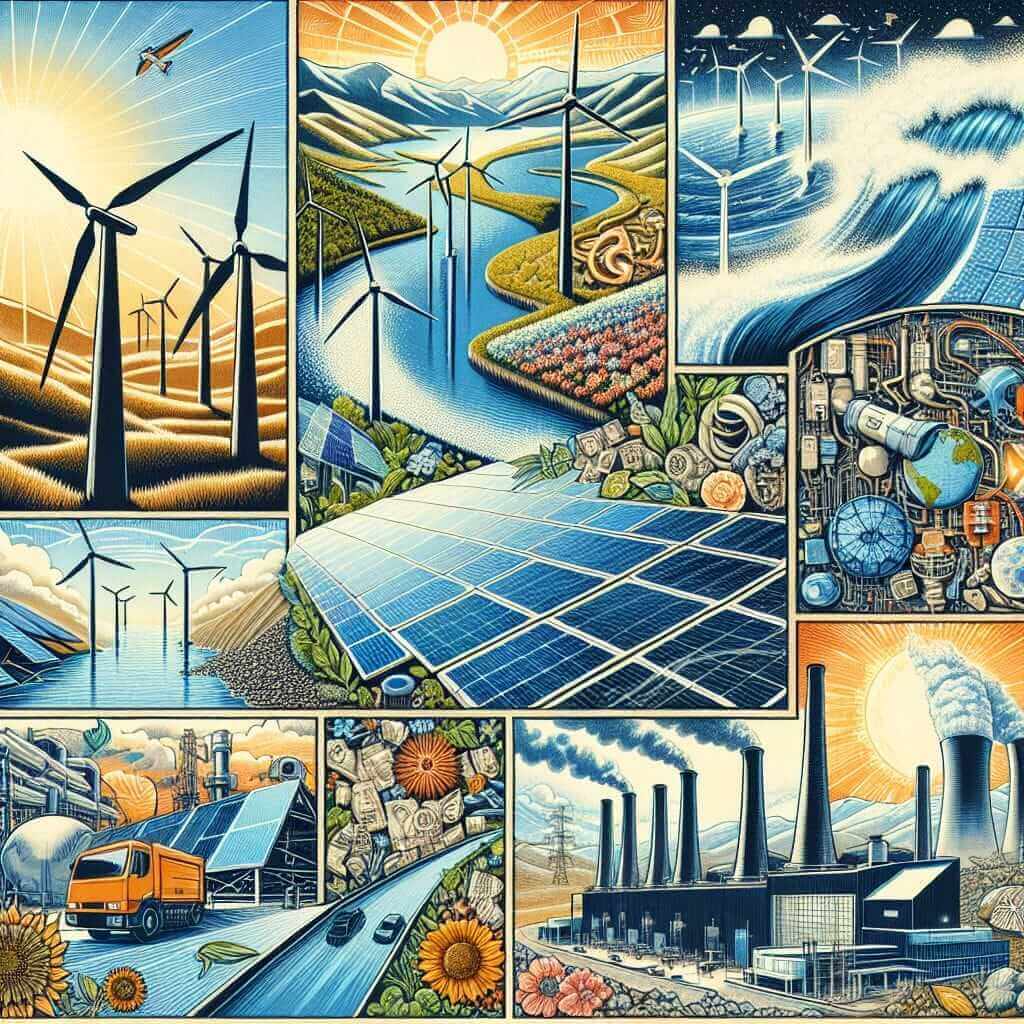As the world grapples with climate change and the depletion of fossil fuel reserves, the move towards alternative energy sources has become a vital topic. This theme frequently appears in IELTS Writing Task 2, and understanding it thoroughly is crucial for test-takers. Let’s delve into this topic, evaluate its appearance in past IELTS exams, and create a comprehensive essay that meets the standards of a Band 7 or 8 response.
Overview of the Topic
Alternative energy sources refer to the diverse range of energy solutions that do not rely on fossil fuels like coal, oil, or natural gas. These include:
- Solar energy
- Wind energy
- Hydropower
- Biomass energy
- Geothermal energy

From examining past IELTS exams, topics around alternative energy sources have appeared quite frequently. Common questions include discussing the importance of switching to renewable energy, evaluating the drawbacks and benefits, and predicting future energy trends. Below are some IELTS Writing Task 2 prompts that closely align with this theme:
- “Some people believe that the use of alternative energy sources should replace fossil fuels as soon as possible. To what extent do you agree or disagree?”
- “As global energy demand continues to increase, renewable energy sources are being seen as the solution. Discuss the advantages and disadvantages of these alternative energy sources.”
- “The world is facing a major challenge in the form of climate change. How effective are alternative energy sources in addressing this issue?”
For this exercise, we will focus on the first prompt as it addresses both the urgency and the support for the shift in energy policy.
Some people believe that the use of alternative energy sources should replace fossil fuels as soon as possible. To what extent do you agree or disagree?
Analyzing the Prompt
This prompt asks for the writer’s opinion on whether alternative energy sources should swiftly replace fossil fuels. A balanced essay should:
- Discuss the current need for alternative energy sources.
- Examine the benefits of renewable energy.
- Address potential challenges or drawbacks associated with transitioning.
- Present a clear stance, either agreeing or disagreeing, or providing a balanced view.
Sample Essay
Introduction
In today’s world, the compelling need to switch from fossil fuels to renewable energy sources is gaining momentum. With the rapid depletion of non-renewable resources and the escalating environmental crisis, reliance on alternative energy is seen not only as a necessity but as an urgent priority for sustainable development. This essay concurs with the viewpoint that alternative energy sources should supplant fossil fuels expeditiously, albeit acknowledging the potential challenges in implementing this shift.
Body Paragraph 1
The primary argument in favor of an immediate transition to alternative energy is the long-lasting environmental benefits. Fossil fuels are major contributors to greenhouse gas emissions, which lead to global warming and climatic disruptions. Renewable energy sources, such as solar and wind power, produce negligible emissions, thereby significantly reducing pollution levels and mitigating climate change impacts.
Body Paragraph 2
Moreover, renewable energy is sustainable and inexhaustible. Unlike fossil fuels, which are finite and subject to depletion, alternative energy sources harness natural processes that are continuously replenished. This sustainability ensures long-term energy security and stability, which is paramount for the progression of modern economies.
Body Paragraph 3
However, transitioning from fossil fuels to renewable energy is not without its challenges. High initial investment costs and technological infrastructure are needed to harness and distribute renewable energy effectively. Developing countries, in particular, may struggle with these financial and logistical barriers. Additionally, the energy output from renewable sources is occasionally inconsistent due to weather conditions, posing reliability issues.
Conclusion
In conclusion, while the shift from fossil fuels to renewable energy sources is imperative and beneficial for the environment, strategic planning and robust investments are required to overcome the hurdles in its implementation. Ultimately, the benefits of cleaner air, sustainable energy, and a healthier planet far outweigh the challenges, making the transition not only desirable but essential. (240 words)
Key Considerations While Writing on This Topic
Vocabulary and Grammar
- Focus on specific terminology: Use terms like “renewable energy,” “greenhouse gas emissions,” “sustainable development,” and “energy security.”
- Complex sentences: Implement a mix of simple, compound, and complex sentences to showcase grammatical range.
- Cohesive devices: Use phrases like “furthermore,” “moreover,” and “however” for better flow.
Vocabulary to Remember
- Greenhouse gases (noun): [ˈɡriːnˌhaʊs ɡæsɪz] – gases that trap heat in the atmosphere, contributing to global warming.
- Depletion (noun): [dɪˈpliːʃən] – reduction in the number or quantity of something.
- Exhaustible (adjective): [ɪɡˈzɔːstəbəl] – able to be used up; not sustainable.
- Mitigate (verb): [ˈmɪt.ɪ.ɡeɪt] – to make something less severe or serious.
- Infrastructure (noun): [ˈɪn.frəˌstrʌk.tʃər] – the basic physical systems and structures needed for operation.
Conclusion
The move to alternative energy sources is an ongoing and critical discussion in the modern world, reflected in various IELTS Writing Task 2 prompts. Understanding the merits and challenges of this transition is crucial for a well-rounded essay. Practicing with such topics will help you articulate your thoughts more effectively in the exam. Future prompts may continue to explore the implications of renewable energy, economic factors in energy policy, and the role of innovation in energy developments.